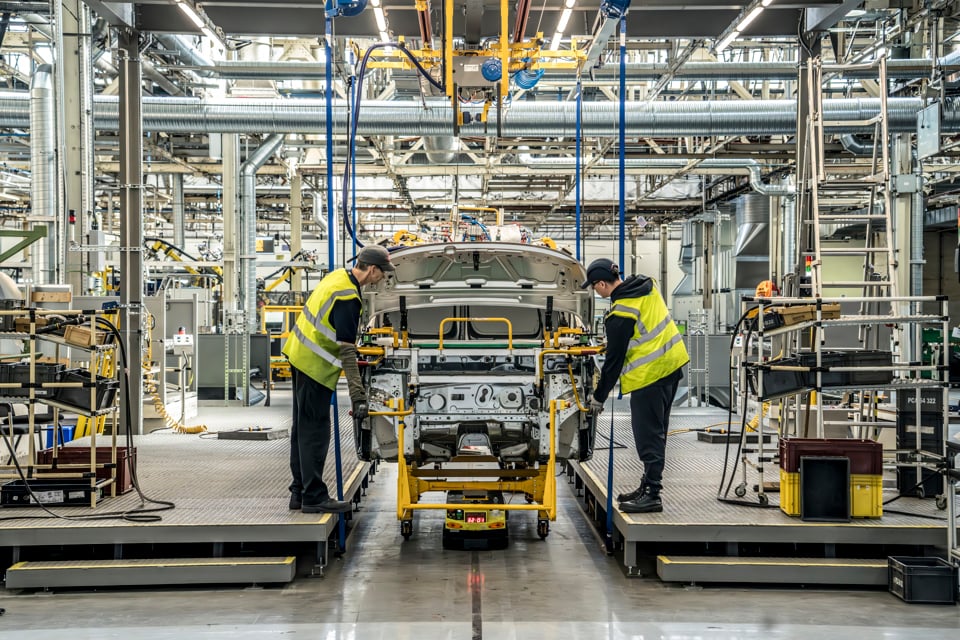New regulations that come into force today will increase electric vehicle (EV) sales and help grow charging infrastructure, the Government argues.
The zero emission vehicle (ZEV) mandate sets out the percentage of new zero emission cars and vans manufacturers will be required to produce each year.
This year, 10% of vans and more than a fifth (22%) of cars sold by manufacturers will need to be electric.
The targets for manufacturers will increase each year, requiring 80% of new cars and 70% of new vans sold in Great Britain to be zero emission by 2030, increasing to 100% by 2035.
Vehicle makers that fail to achieve the ZEV mandate sales targets will be subject to fines.
Technology and decarbonisation minister Anthony Browne will visit a BP Pulse hub in London today to mark the launch of the ZEV mandate.
He said: “We are providing investment certainty for the charging sector to expand our charging network which has already grown by 44% since this time last year. This will support the constantly growing number of EVs in the UK, which currently account for over 16% of the new UK car market.”
Akira Kirton, vice president of BP Pulse UK, added: “We are pleased to host the minister at our most powerful EV charging hub in central London to mark the start of the ZEV mandate.
“This mandate instils confidence in our strategy, reaffirming our plans to invest £1 billion over 10 years to continue to develop hundreds of EV charging hubs across the country by 2030 to bolster the UK’s charging infrastructure.”
With more than 10,000 EVs on Uber’s platform in London, Andrew Brem, general manager of Uber UK, believes that the availability and up-front cost of EVs can still be a barrier for many drivers.
“The ZEV mandate coming into force is a significant moment which will help to drive down the costs of EVs and increase supply – accelerating the uptake of EVs over the next decade,” he said.
In the first half of 2023, 16% of all new cars sold were electric. Only 11 car makers exceeded the 22% target for EV sales, however, and a third of all the EVs sold in the UK between January and July came from just three brands.
Manufacturers such as BYD, GWM ORA, MG, Polestar, Smart and Tesla were significantly ahead of the target, due to their model ranges being mainly or entirely electric.
BMW, Cupra, Jaguar, Porsche and Volvo were also close-to or already achieving the target.
The figures, however, suggested that Japanese brands Honda, Mazda, and Toyota Lexus faced a particular challenge, as the bulk of their sales come from internal combustion engine (ICE) models.
Ford, equally, has a strong ICE mix, with EVs making up just 2% of its registrations in the first half of 2023.
Sue Robinson, chief executive of the National Franchised Dealers Association (NFDA,) which represents car and commercial retailers across the UK, said: "The introduction of the ZEV mandate into law today will be a key policy in driving electric vehicle uptake and will heavily influence the automotive retail sector in its ongoing transition to electric."
However, she added: "There is still more that needs to be done by Government to maintain the positive electric vehicle trajectory in registrations and increase public confidence in these greener, cleaner vehicle types.
"The recent news that Government has missed its own target of six rapid or ultra-rapid chargers at every motorway service station in England by the end of 2023 will do the industry no favours in its attempts to ease the minds of consumers."
She concluded: "Whilst the ZEV mandate is certainly a step in the right direction, the Government needs to offer more attractive price incentives and look to improve EV charging infrastructure across the country to increase consumer confidence in electric and help drive the country towards its net-zero commitments."






















martinwinlow - 03/01/2024 13:36
HMG is living in la-la land. There is simply *no-where near* the required rapid DC charging infrastructure needed for even the EVs we have now let alone next year or the year after that, etc. 100% of motorway service areas were supposed to have at least 6 such chargers each by now and only 40% do. Has a single rapid DC charger network operator been fined for failing to maintain what rapid chargers there are out there, yet? 5 minutes looking at Zap-map or any other provider of EV charging infrastructure information will show what a dire state the country's rapid charging infrastructure is in with countless rapid chargers off-line and many of them having been so for *months*. I won't be happy until every senior post-holder in the DoT has no option but to do what official motoring they do in EVs... *then* perhaps they will really understand the problem.